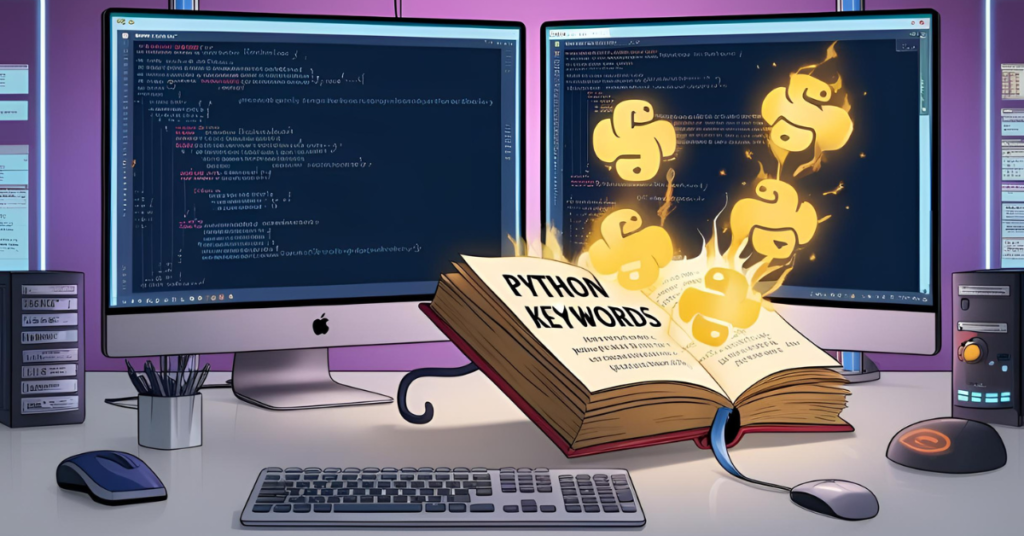
Outline
- Importance of Python in Testing
- Overview of Python Frameworks
- Selenium
- What is Selenium?
- Key Features
- Advantages for Testers
- Use Cases
- PyTest
- What is PyTest?
- Key Features
- Advantages for Testers
- Use Cases
- Robot Framework
- What is Robot Framework?
- Key Features
- Advantages for Testers
- Use Cases
- Behave
- What is Behave?
- Key Features
- Advantages for Testers
- Use Cases
- Nose2
- What is Nose2?
- Key Features
- Advantages for Testers
- Use Cases
- TestProject
- What is TestProject?
- Key Features
- Advantages for Testers
- Use Cases
- Testify
- What is Testify?
- Key Features
- Advantages for Testers
- Use Cases
- Lettuce
- What is Lettuce?
- Key Features
- Advantages for Testers
- Use Cases
- UnitTest
- What is UnitTest?
- Key Features
- Advantages for Testers
- Use Cases
- Slash
- What is Slash?
- Key Features
- Advantages for Testers
- Use Cases
- Conclusion
- Summary of Python Frameworks for Testers
- Choosing the Right Framework
- FAQs
- What is the best Python framework for beginners in testing?
- Can I use multiple frameworks together?
- How do I decide which framework to use?
- Are these frameworks free to use?
- What are the system requirements for these frameworks?
Top 10 Python Frameworks for Testers in 2024
Python has solidified its place as one of the top programming languages in the realm of software testing. Its simplicity and versatility make it a favorite among testers. In this article, we’ll dive into the top 10 Python frameworks for testers in 2024, exploring their features, advantages, and use cases. Whether you’re a beginner or an experienced tester, there’s something here for everyone.
Selenium
What is Selenium?
Selenium is one of the most popular open-source frameworks for web application testing. It supports multiple programming languages, but Python is a standout due to its simplicity and robust libraries.
Key Features
- Supports multiple browsers (Chrome, Firefox, IE)
- Cross-platform compatibility
- Extensive community support
- Integration with various CI/CD tools
Advantages for Testers
Selenium allows testers to write scripts in various languages, making it highly flexible. Its ability to mimic user actions in a browser is invaluable for end-to-end testing.
Use Cases
Selenium is perfect for automating web applications for testing purposes but is also widely used for automating web-based administration tasks.
PyTest
What is PyTest?
PyTest is a testing framework that allows you to write simple yet scalable test cases. It’s known for its easy syntax and powerful features.
Key Features
- Simple syntax for writing test cases
- Supports fixtures for setup/teardown
- Integrates with other plugins
- Excellent for parameterized testing
Advantages for Testers
PyTest’s simplicity and scalability make it ideal for both small and large projects. Its fixture mechanism is a powerful feature that helps manage test data and resources efficiently.
Use Cases
PyTest is used for unit testing, functional testing, and API testing. It’s especially useful in test-driven development (TDD) environments.
Robot Framework
What is Robot Framework?
Robot Framework is an open-source automation framework that uses a keyword-driven approach for test automation. It is versatile and integrates well with other tools.
Key Features
- Keyword-driven approach
- Clear syntax
- Extensive libraries
- Supports both web and mobile testing
Advantages for Testers
Robot Framework’s keyword-driven nature allows testers to write clear and understandable test cases. It’s easy to extend with custom libraries, making it highly adaptable.
Use Cases
Robot Framework is used for acceptance testing and robotic process automation (RPA). Its versatility makes it suitable for a wide range of applications.
Behave
What is Behave?
Behave is a behavior-driven development (BDD) framework for Python. It allows you to write tests in a natural language style.
Key Features
- BDD approach
- Easy to write and read tests
- Supports Gherkin syntax
- Integrates with other testing tools
Advantages for Testers
Behave makes it easy to create understandable and maintainable tests. Its use of Gherkin syntax means non-programmers can read and write tests, facilitating better collaboration.
Use Cases
Behave is excellent for acceptance testing and is often used in projects where business analysts and testers collaborate closely.
Nose2
What is Nose2?
Nose2 is the successor to Nose and is a popular testing framework in the Python community. It extends unittest to make testing easier.
Key Features
- Plugin-based architecture
- Easy test discovery
- Supports multiple plugins
- Flexible test runners
Advantages for Testers
Nose2’s plugin system makes it highly extensible. It’s straightforward to get started with and integrates well with existing unittest tests.
Use Cases
Nose2 is used for unit testing, functional testing, and as a tool to extend existing unittest test cases with additional capabilities.
TestProject
What is TestProject?
TestProject is a free cloud-based test automation platform. It supports various languages and integrates seamlessly with Selenium and Appium.
Key Features
- Cloud-based platform
- Supports web, mobile, and API testing
- Integrates with CI/CD tools
- Detailed reporting and analytics
Advantages for Testers
TestProject offers an easy-to-use interface and powerful features that simplify the automation process. Its cloud-based nature means you can collaborate and manage tests effortlessly.
Use Cases
TestProject is ideal for end-to-end testing of web and mobile applications. Its integration capabilities make it suitable for continuous testing in CI/CD pipelines.
Testify
What is Testify?
Testify is a testing framework for Python that offers a more advanced and flexible way to write tests. It’s built to improve the testing experience beyond unittest and Nose.
Key Features
- Class-based tests
- Fixture management
- Detailed test reporting
- Parallel test execution
Advantages for Testers
Testify provides a more structured way to write tests, which is beneficial for larger projects. Its fixture management and parallel execution features save time and resources.
Use Cases
Testify is used for unit and integration testing. Its advanced features make it suitable for complex projects requiring extensive test coverage.
Lettuce
What is Lettuce?
Lettuce is another BDD framework for Python, similar to Behave. It allows you to write tests in a natural language format.
Key Features
- BDD approach
- Gherkin syntax support
- Easy to write and read tests
- Integrates with other testing tools
Advantages for Testers
Lettuce’s focus on BDD makes it easy to create tests that are understandable by all stakeholders. Its integration capabilities make it versatile for various testing needs.
Use Cases
Lettuce is used for acceptance testing and collaboration between testers and business analysts. It’s particularly useful in agile environments.
UnitTest
What is UnitTest?
UnitTest is the built-in testing framework in Python, also known as PyUnit. It is inspired by the JUnit framework for Java.
Key Features
- Built-in framework
- Simple and straightforward
- Supports test discovery
- Integrates with other tools
Advantages for Testers
UnitTest is part of the Python standard library, making it readily available without the need for additional installations. Its simplicity and integration capabilities make it a reliable choice.
Use Cases
UnitTest is used for unit testing and is often the starting point for many Python developers. Its integration with other tools makes it suitable for more extensive test suites.
Slash
What is Slash?
Slash is a testing framework designed for complex testing scenarios. It focuses on providing detailed and useful test results.
- Detailed test results
- Fixture management
- Parallel test execution
- Highly customizable
Key Features
Advantages for Testers
Slash’s focus on detailed results and customization makes it ideal for projects that require thorough testing and analysis. Its parallel execution feature saves significant time.
Use Cases
Slash is used for unit, integration, and system testing. Its advanced features make it suitable for large and complex projects.
Conclusion
Choosing the right Python framework for testing can significantly impact your project’s success. Each framework has its unique strengths and is suitable for different testing needs. Whether you need a framework for simple unit tests or complex acceptance tests, there’s a Python framework that fits your requirements.
FAQs
What is the best Python framework for beginners in testing?
PyTest is highly recommended for beginners due to its simple syntax and ease of use.
Can I use multiple frameworks together?
Yes, many frameworks can be used together depending on the project requirements and testing needs.
How do I decide which framework to use?
Consider the type of testing you need, the complexity of your project, and the features offered by each framework.
Are these frameworks free to use?
Most of the frameworks mentioned are open-source and free to use.
What are the system requirements for these frameworks?
The system requirements vary, but most frameworks work on any system that supports Python.
![]()
Subscribe to QABash Weekly 💥
Dominate – Stay Ahead of 99% Testers!





